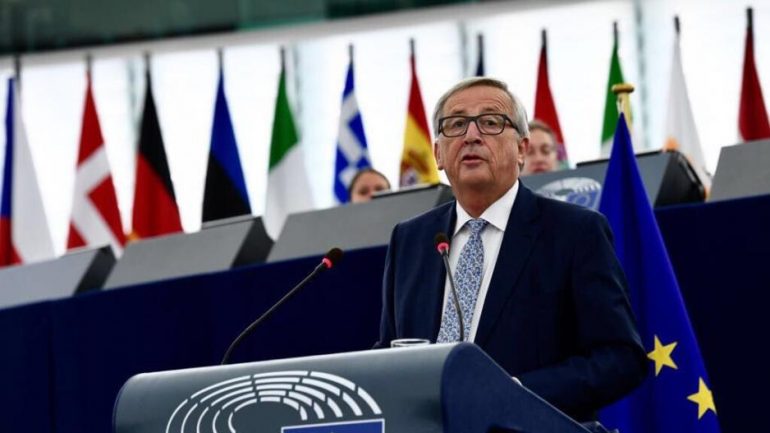From today until next Wednesday, Commission President Jean-Claude Juncker will be in six Western Balkan countries seeking to join the EU: FYROM, Albania, Serbia, Montenegro, Bosnia and Herzegovina and Kosovo. As DW points out, with this visit, Juncker wants to "encourage" the six countries in the European strategy for EU enlargement.
The governments of these countries will first be called upon to carry out a series of radical reforms in the direction of consolidating the rule of law, combating corruption, ensuring the independence of the media, improving the economy and diplomatic relations with the rest of the world. Countries. Only when all the necessary criteria are met will it be possible for them to join the EU, Commission officials point out. The EU's willingness to accept these countries is a given, and so the Western Balkans now have a real European perspective.
Shortly before Jean-Claude Juncker's departure for his Balkan tour, Enlargement Commissioner Johannes Hahn also made a "quasi-gift" to those countries, saying accession talks could begin soon. In the summer, G. Khan said, a more specific date could possibly be decided. So far, formal negotiations have only begun with Serbia and Montenegro. Little Montenegro, which is already a member of NATO, has made the most progress.
Undoubtedly, in this trip, JK Juncker will face the chronic conflicts that continue to plague the Balkan countries. The most difficult part of the Balkan puzzle right now is Kosovo. The region has renounced armed conflicts with Serbia, but is not recognized as an independent state by all EU countries and, of course, by Serbia. However, a condition for the accession of both Serbia and Kosovo to the EU is the settlement of their differences. Serbian President Aleksandar Vucic has long sought to persuade his countrymen to agree to recognize Kosovo as a state. "If we want a future in the EU, we have to pay the price for a piece of the past," he said two weeks ago during a visit to Brussels. Brussels has been trying for years to mediate a solution between Belgrade and Pristina, but to no avail.
But it is not just Kosovo that will concern the president of the Commission. The issue of "open accounts" between Croatia, which is already a member of the EU, and Serbia, which are remnants of the war between them, will once again be at the center of the talks. Like the issue of minorities in Bosnia and Herzegovina.
"In this trip we will try to explain and make clear why the problems of the past need to be resolved, otherwise we will waste unnecessary time," the head of the Commission said a few days ago, wanting to explain his role in the Balkans at the moment. . But he also stressed that in Europe the candidate countries need to be patient. "The agreement between Germany and Luxembourg to end the effects of World War II lasted 45 years," said Juncker, who also served as Luxembourg's prime minister.
In any case, the Commission's intention is to start in the spring and by the beginning of autumn the drawing up of a "road map" for each of the six countries of the Western Balkans, which will describe the individual specifics. The Balkan Summit to be held in Sofia in May under the Bulgarian Presidency of the EU will also be crucial. The coming months will be crucial for the European future of the six countries and the wider correlations in the Balkans. .
